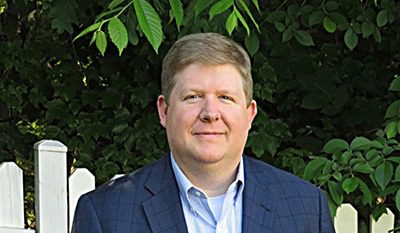
Studio portrait of Sid Salter. (photo by Beth Wynn / © Mississippi State University)
What makes American democracy and the republic in which we live special is our willingness to protect free speech even when we disagree with some or all of it.
The expulsion of the “Tennessee Three” – actually two of the three – elected state representatives in the Tennessee House of Representatives over their vocal interruptions of the proceedings of that chamber in protesting a recent Nashville mass shooting raises fundamental questions.
Like the Mississippi Legislature, the Tennessee House has a Republican supermajority which affords them immense authority over legislative matters and the daily operations of the House. Like most of the rest of the nation’s state legislatures and in the U.S. Congress, the legislative chambers are essentially the judge of the conduct of its members.
Under those laws, legislators can be expelled or otherwise punished for a wide range of conduct, but over history that action has been taken only rarely. The expulsion is apparently allowed by Tennessee state law, but it remains for judicial review to determine the constitutionality of the action.
After the GOP leadership of the Tennessee House determined that two black male Democrat lawmakers and one white female Democrat lawmaker had interrupted the House proceedings while protesting in favor of gun law reforms, the chamber voted to expel the two black lawmakers and came within one vote of expelling the white female lawmaker on the same grounds.
The action came after Tennessee House Republican leaders determined that the gun reform protests of the three Democrats were “disorderly” and brought “dishonor” to the entire legislative chamber. That was after the Covenant School shootings in Nashville that left six dead including three children.
And clearly, the issue here was not one of whether or not gun reforms should or should not be contemplated after the Nashville school shooting. It’s also clear that passions and angry speeches have risen to the level of punches being thrown in statehouses and occasionally on Capitol Hill in Washington. Those vocal, sometimes violent protests go back to prior to the Civil War.
The History of the U.S. House of Representatives reports: “On February 6, 1861, as the U.S. House debated the Kansas Territory’s pro-slavery Lecompton Constitution, the most infamous floor brawl in the history of the House erupted as Members debated late into the night of February 5-6.
“Shortly before 2 a.m., Pennsylvania Republican Galusha Grow and South Carolina Democrat Lawrence Keitt exchanged insults, then blows.”
“In an instant, the House was in the greatest possible confusion. More than 30 members joined the melee. Northern Republicans and Free Soilers joined ranks against Southern Democrats. Speaker James Orr, a South Carolina Democrat, gaveled furiously for order and then instructed Sergeant-at-Arms Adam J. Glossbrenner to arrest non-compliant members.
“Wading into the combatants,” Glossbrenner held the House Mace high to restore order. Wisconsin Republicans John (Bowie Knife) Potter and Cadwallader Washburn ripped the hairpiece from the head of William Barksdale, a Democrat from Mississippi.
“The melee dissolved into a chorus of laughs and jeers, but the sectional nature of the fight powerfully symbolized the nation’s divisions.”
The expelled Tennessee representatives can stand for re-election and both are said to be favored to do so in their districts. But that’s not really the point.
Regardless of the party in control or whether it is at the federal or state level, legislative majorities and particularly supermajorities must work hard to protect and foster the rights of dissent and protest from those in the minority. Otherwise, our system of government devolves.
Over the last decade, it appears that Americans are reassessing their appetites for political speech with which they disagree and for protests on behalf of changes in law they don’t support.
It’s important to remember that free speech extends to those in both the majority and the minority. That does not offer either status the ability to act outside the law. But what makes American democracy and the republic in which we live special is our willingness to protect free speech even when we disagree with some or all of it.









